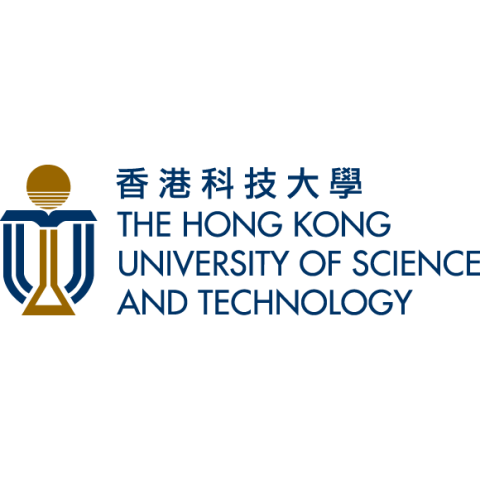
Why range may be a crucial skill for the employees of the future
You may also like
This year’s first-year students will be stepping into a world reshaped by rapid technological shifts, global challenges and an evolving job market. Unlike following the predictable career trajectory of past generations, our new students can feel like they’re entering uncharted territory.
In uncertain times, higher education cannot just impart knowledge for specific jobs. We must foster adaptable, resilient, self-aware learners who can navigate any future. Our task is to create environments in which students intentionally build the toolkit for lifelong navigation, grounded in evidence-based strategies for the realities they face.
Forging discipline, ownership and connection
The foundation of this toolkit begins with self-discipline and ownership. In large lectures without mandatory attendance, students often skip class, missing a critical daily exercise in commitment. Instead, let’s design systems that help students recognise that attending every session, even when it’s not mandatory, builds the muscle of showing up for their future.
- Spotlight guide: Soft skills for hard times
- Equipping university graduates to think beyond the classroom
- Machine v human skills: what do we teach now?
While professors are expert guides, we must encourage students to journey beyond the syllabus, ask challenging questions that linger after the end of class and take it upon themselves to seek out additional resources in the library or online. Cultivating curiosity for genuine understanding, not just grades, is the irreplaceable engine of lifelong learning.
But this journey is not a solitary one. Communication and collaboration are essential. Create opportunities for students to engage actively with peers, not just in structured study groups, but in debates after seminars, brainstorming sessions for projects and casual conversations over coffee. These interactions are vital laboratories for exchanging ideas, challenging assumptions, practising active listening and learning to build consensus and solve complex problems together.
Cultivating transferable skills for an unpredictable world
While academic mastery in a chosen field is important, students’ ultimate currency will be their transferable skills. The World Economic Forum’s Future of Jobs Report 2025 states that 39 percent of workers’ core skills will be disrupted by 2030, and 170 million new jobs will emerge – equivalent to 14 percent of today’s employment in the world. This is the landscape students will graduate into. Degrees provide a foundation but it is the adaptable, human skills that the Future of Jobs Report highlights that will be our students’ passports into the future. These skills include:
1. Analytical and creative thinking: David Epstein, in his book Range: Why Generalists Triumph in a Specialized World, details how Nobel laureates are 22 times more likely to have serious hobbies outside their field than typical scientists. Why? Diverse pursuits build analogical thinking, the ability to see patterns from one domain and apply them to an entirely different problem. Encourage students to cross-train this muscle – not just solve problem sets but join debate clubs, write for campus papers, learn instruments or take art history classes.
2. Resilience, flexibility and agility: The Future of Jobs Report notes that six in 10 workers will require significant retraining by 2027, but only half currently have access to adequate training opportunities. Students’ ability to learn new things quickly, bounce back from setbacks such as a failed exam, a rejected job application or a group project conflict, and adjust course is paramount. We should frame our students’ first term as a series of agility drills, where adaptation is crucial.
3. Leadership and social influence: Epstein contrasts highly specialised “kind” learning environments (such as chess, with clear rules and immediate feedback) with “wicked” ones (like the real world, where rules are unclear and feedback is delayed or ambiguous). The university experience, including interdisciplinary projects and club leadership, is a prime “wicked” environment. Success hinges on influencing others, navigating ambiguity and building consensus, skills developed far more effectively in these complex, real-world simulations than in standardised testing. Our job should be to expose students to as many “wicked” environments as possible for them to foster their leadership skills and social influence.
4. Motivation and self-awareness: Epstein shows how athletes such as Roger Federer benefited from sampling diverse sports early on, developing broad motor skills and discovering his true passion and aptitude later. Let’s urge students to use their general education requirements and extracurricular activities not just to check boxes but to actively probe what energises them and where their strengths lie.
5. Technological literacy: Encourage students not to drop that statistics class because it uses programming languages like R or Python. Instead, help them embrace it as learning the language of modern problem-solving and data analysis, and challenge them to understand how the algorithms that shape their social media feed or potential job applications actually function.
6. Empathy and active listening: Epstein discusses interdisciplinary teams tackling complex problems such as cancer research. Breakthroughs often come not solely from the deepest specialist but from someone who can actively listen to experts in other fields, understand their language and challenges, and spot unexpected connections between disciplines. Help students practise this skill deliberately in every discussion session and group meeting.
7. Curiosity and lifelong learning: Epstein argues that “match quality” (finding work that fits your evolving skills and passions) is more important for long-term success and satisfaction than early specialisation. This requires ongoing exploration and learning. A biology degree might lead students to healthcare, but curiosity about policy could pivot them towards health equity advocacy, a field demanding continuous learning about law, sociology and economics.
The power of range: Why degrees aren’t destinies
This emphasis on broad skills underscores why limiting students’ identity and career prospects solely to their declared major is a strategic mistake. A student’s marketing major might traditionally lead to advertising agencies but artificial intelligence automating routine tasks could shift the focus towards roles requiring deep understanding of human psychology, ethical artificial intelligence and managing cross-functional innovation teams.
This is where Epstein’s Range dismantles the myth that early, narrow specialisation is the only path to success. Instead, urge students to embrace what Epstein calls the “sampling period”. The extracurricular activities aren’t mere fillers; they are essential laboratories for developing the very skills the Future of Jobs Report deems critical.
The student government president learns leadership and resilience through real-time crises and budget negotiations. The debate team captain sharpens their analytical thinking and persuasive communication skill under intense pressure. The volunteer tutor develops deep empathy and active listening. The student exploring both robotics club and poetry workshops is cross-training their brain for the kind of integrative thinking that will solve tomorrow’s complex, unforeseen problems.
We should remind students not to just join a club but actively seek a role within it that pushes them outside their comfort zone. They should take one course per semester purely out of curiosity, completely unrelated to their degree or requirements, or schedule coffee with a professor whose research sounds fascinating, even if it’s not their field. These are deliberate acts of building range and cultivating the transferable skills that will define students’ future resilience and success.
Students’ journey starts now, and the adaptable, resourceful navigators they become during these years will define their future far beyond graduation. Our responsibility is to equip them for the journey.
Yılmaz Köylü is assistant professor of language education at Hong Kong University of Science and Technology.
If you’d like advice and insight from academics and university staff delivered direct to your inbox each week, sign up for the Campus newsletter.




